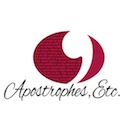Determiners are a new part of speech. Yes, you read that correctly: while the English language and its speakers cannot come up with a singular gender-neutral pronoun, linguists and grammar experts have managed to invent a whole new category of grammatical function in the last century. How is this possible? How had it not been a problem before?
A brief history of determiners
The name ‘determiner’ was invented by the American linguist Leonard Bloomfield in 1933. Determiners were then pretty much ignored until the 1960s, when the concept of what they were and what they did was developed in the separate work of Ralph Long, Barbara Strang, and Randolph Quirk and his colleagues. A Comprehensive Grammar of the English Language (by Quirk, Greenbaum, Leech and Svartvik), published in 1985, cemented the place of determiners as a part of speech. If you learnt your English grammar before 1985, you probably were not taught about determiners. (This outline is based on the Wikipedia summary of the work of Peter Matthews.)
What are determiners?
Determiners are mostly a group of words that used to be considered as other parts of speech:
- what used to be called the demonstrative adjectives (this, that, these, those, which)
- what used to be called quantitative (or quantifying) adjectives (all, many, most, some, few and other words)
- what used to be called possessive adjectives or possessive pronouns (my, our, your, his, her, its, their, whose)
- numbers, which used to be considered as adjectives; both cardinal numbers (one, two, three . . .) and ordinal numbers (first, second, third . . .) have been claimed by the determiners mob
- the definite article (the) and the indefinite articles (a and an).
As you can see, with the exception of just three words (the, a, an), all the words that are now said to be determiners used to be adjectives, and we all coped just fine thinking about these words as adjectives.
With great inventiveness, determiners are usually grouped into six categories:
- articles
- demonstrative determiners
- possessive determiners
- quantifying determiners
- numbers
- ordinal numbers.
I’ll let you work out which words fall into which categories (their former categories as adjectives may help!).
Determiners can also be grouped into three different categories, based on the order in which they are placed in a sentence. In this type of classification, they are referred to as pre-determiners, main determiners and post-determiners. These examples show how more than one determiner can be used before a noun:
- Her two friends
- My many books
- Those few biscuits
- The first fifty callers
- These last two guests
Different experts give different definitions of what it is determiners actually do, which makes their status as a part of speech a bit murky, since the parts of speech are really just names for different functions of words in sentences. Pam Peters, in The Cambridge Guide to Modern English Usage, says that they ‘occupy the first slot in the noun phrase’, which is hardly a function at all. Other references say they introduce nouns (which is perhaps another way of expressing Pam Peters’s explanation), point to and quantify nouns. Given this rather loose set of the uses of determiners, perhaps one way to think of them (if we go back to the idea of nouns being like shipping containers), is that they are like the recognition codes stamped on containers: these codes both signify possession and do what a demonstrative determiner/adjective does, which is to help distinguish this container from that container . . .
Determiners are like the codes on shipping containers, helping us to distinguish this one from that one
Why do we need determiners?
This is a good question. Not being a linguist engaged in the finer analysis of noun phrases, I’m not at all convinced that we do. Apart from the articles (those three little words: the, a, an), which I’ll look at in next week’s blog, determiners pretty much function as do other adjectives: they describe nouns. One online reference has found that most people still call these words adjectives rather than determiners, and I think that is just fine. If they look ducks, walk like ducks and quack like ducks, then it really doesn’t hurt to think of them as ducks . . .

If it looks like a duck and walks like a duck . . .

If you have found this post interesting, you can find a full index to my other posts on the index page. To be notified when I post a new topic, follow me on Facebook! If you have any particular questions you’d like me to answer in future posts, just send me a message. I’m always interested to learn what people think, and how you came across this site, so please post a comment.
If you think you would be interested in either my complete grammar course or an individual customised online course (particularly suited for people who don’t live in Melbourne), just click your preferred option.